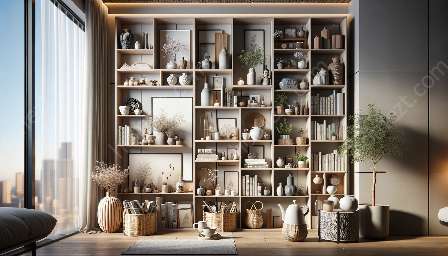There is a growing body of evidence demonstrating the positive psychological benefits of incorporating plants and greenery into home decorating. Indoor plants can have a profound impact on mental well-being, stress reduction, and mood enhancement. This article aims to explore the various ways in which plants can contribute to a healthier and more harmonious living environment.
Reduced Stress and Anxiety
One of the key psychological benefits of having plants inside the home is their ability to reduce stress and anxiety. Studies have shown that the presence of indoor plants can have a calming effect on individuals, leading to lower levels of psychological stress. The act of caring for plants and observing their growth can promote mindfulness and provide a sense of purpose, helping individuals to manage their stress levels more effectively.
Mood Improvement
Indoor plants have been found to have a positive impact on mood and emotional well-being. The visual appeal of plants and greenery can create a soothing and tranquil atmosphere, promoting relaxation and a sense of serenity. Additionally, the presence of plants indoors can help to combat feelings of loneliness and depression, as they provide a connection to nature and the outdoors.
Air Quality Enhancement
Another significant psychological benefit of having plants inside the home is the improvement in air quality. Certain indoor plants have the ability to remove toxins from the air, promoting a healthier indoor environment. Breathing cleaner air can have a direct impact on mental health, with improved air quality contributing to better cognitive function and overall well-being.
Connection to Nature
Bringing elements of nature indoors through the incorporation of plants and greenery can foster a stronger connection to the natural world. This connection has been linked to an array of psychological benefits, including reduced stress, increased self-esteem, and a greater overall sense of well-being. Nature has a profound and positive effect on human emotions, and indoor plants can serve as a constant reminder of the beauty and tranquility of the outdoors.
Promotion of Mindfulness
Caring for indoor plants can promote mindfulness, a state of being in the present moment and fully engaging with one's surroundings. The act of watering, pruning, and tending to plants encourages individuals to be more mindful and attentive, providing a therapeutic outlet for stress relief and mental rejuvenation.
Personalizing Living Spaces
Incorporating plants and greenery into home decorating allows individuals to personalize their living spaces and create environments that are reflective of their personalities and preferences. The presence of plants adds texture, color, and life to indoor spaces, contributing to a sense of comfort and well-being. Personalized living spaces can create a positive and nurturing environment, leading to improved mental health and a greater sense of happiness.
Conclusion
The psychological benefits of incorporating plants and greenery into home decorating are numerous and significant. From stress reduction and mood enhancement to improved air quality and a greater connection to nature, indoor plants play a crucial role in promoting mental well-being and creating harmonious living environments. By embracing the presence of plants indoors, individuals can enjoy the myriad of positive effects that plants have on the mind and emotions, ultimately leading to healthier and happier lifestyles.






































